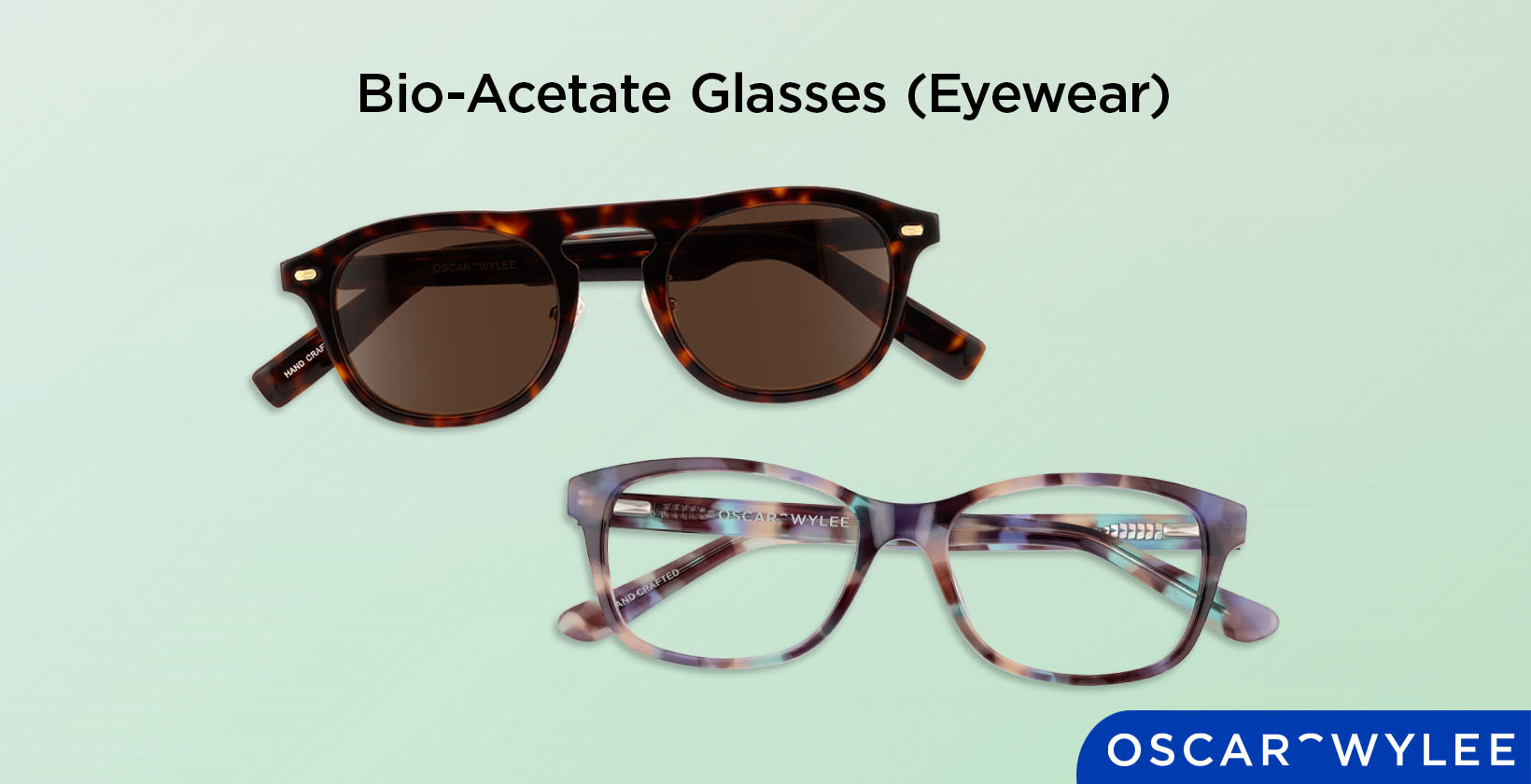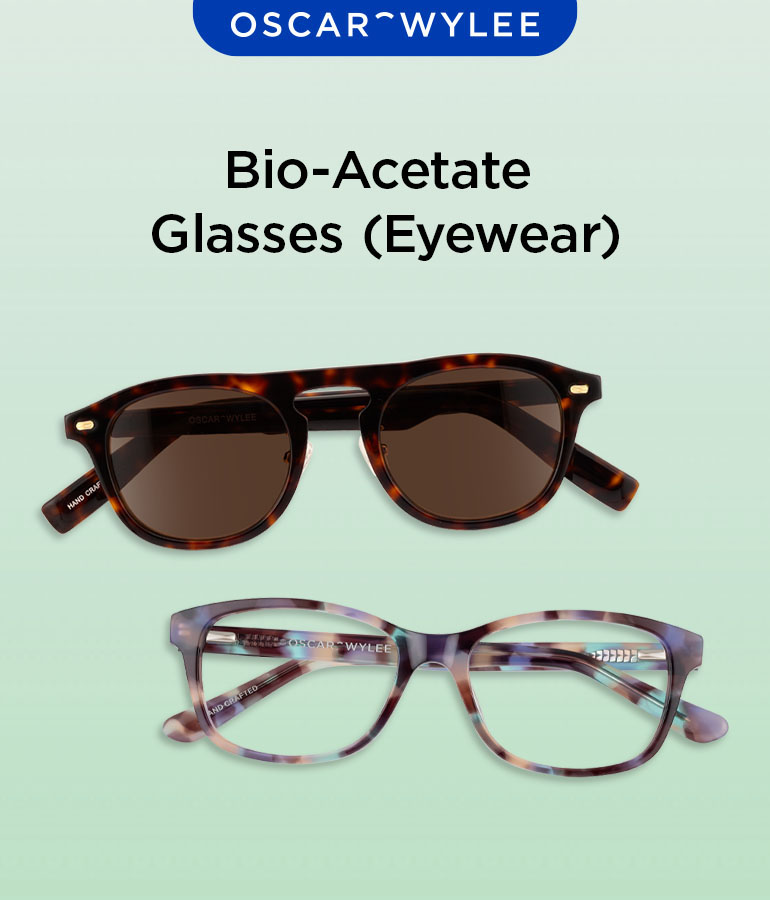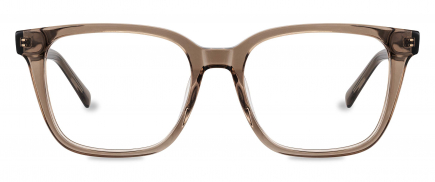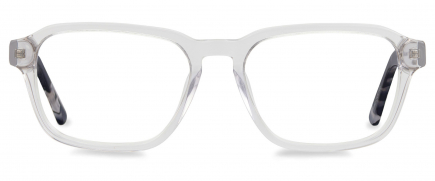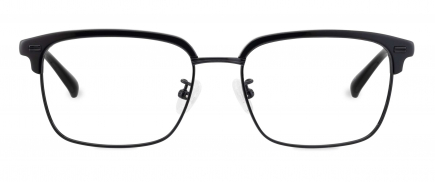Bio-Acetate Glasses (Eyewear)
Published on February 11th, 2025
 Canada
Canada Bio-acetate glasses refer to eyewear made from bio-acetate, a material mainly made from plant-based matter such as wood pulp and cotton fibres. Bio-acetate is notable for being a more sustainable material as it uses fewer oil-based plasticizers in its creation compared to regular acetate, making it ideal for wearers who desire eyewear made with a reduced carbon footprint. Read on for all there is to know about bio-acetate glasses.
What are the Advantages of Bio-Acetate Glasses?
The advantages of bio-acetate glasses are that they are eco-friendly, hypo-allergenic and durable eyewear options. The advantages of bio-acetate glasses are listed below.
- Eco-friendly: Bio-acetate is more eco-friendly than typical eyewear materials. Bio-acetate swaps out some of the oil based plasticizers for bio based materials such as wood pulp and cotton. This decreases the amount of plasticisers used, allowing for a reduced environmental impact as opposed to traditional plastic frames.
- Hypo-allergenic: Bio-acetate glasses can be a hypo-allergenic option as they are made with more natural, non-toxic materials. This may reduce the risk of irritation of the contact points between the glasses and face for those with sensitive skin.
- Durable: Bio-acetate glasses are durable frames resistant to wear and tear and able to maintain their shape and high quality for a long time.
What are the Advantages of Bio-Acetate Glasses in Terms of Production?
The advantage of bio-acetate in terms of production is that bio-acetate uses less oil-based sources. The materials that go into the manufacturing of bio-acetate glasses are renewable, plant-based alternatives such as cotton and wood pulp. Swapping oil-based plasticizers for bio-based plasticizers in the material's composition allows for a reduced carbon footprint. This ultimately makes for a more eco-conscious production process compared to regular acetate.
Are Bio-acetate Glasses Plant-Based?
Yes, bio-acetate glasses are plant-based. They are made from plant matter such as wood pulp and cotton fibres and contain a lesser amount of oil-based plasticizers compared to regular acetate.
Are Bio-Acetate Glasses Eco-Friendly?
Yes, bio-acetate glasses are considered eco-friendly in comparison to regular acetate. This is because there is a lessened amount of oil-based plasticizers in its creation as it is substituted with bio-based sources like wood pulp and cotton.
What are the Popular Styles for Men's Bio-Acetate Glasses?
The most popular styles for men’s bio-acetate glasses are rectangular frames, aviator frames and warm brown frame colours. Some of the most popular styles for men’s bio-acetate glasses are listed below.
- Rectangular Frames: Rectangular frames are a classically popular choice amongst men due to their modern, sharp look. Bio-acetate rectangle glasses provide a seamless style amongst a variety of outfits.
- Aviator Frames: Aviator frames are a popular bio-acetate frame for men. They exude a classically vintage look and continue to be commonly worn by men, particularly in casual settings.
- Warm Brown Frame Colours: Warm brown frame colours are popular for men’s bio-acetate glasses. Ranging from deep browns to tortoiseshell, these are particularly popular bio-acetate sunglass options.


What are the Popular Styles for Women's Bio-Acetate Glasses?
The most popular styles for women’s bio-acetate glasses are transparent frame colours, classic frame shapes, and cat-eye frames. Some of the most popular styles for women’s bio-acetate glasses are listed below.
- Transparent frames: Transparent bio-acetate frames offer a minimalist and versatile accessory for any outfit. Often with a light-coloured tint, they add a subtly stylish and modern look.
- Classic frame shapes: Classic bio-acetate frame shapes are versatile. They are a softly angled frame shape compatible with many types of faces.
- Cat-eye frames: Cat-eye bio-acetate frames are a classic feminine shape. They are perfect for a playful, eye-catching look that can be particularly complementary to diamond, heart and pear-shaped faces.
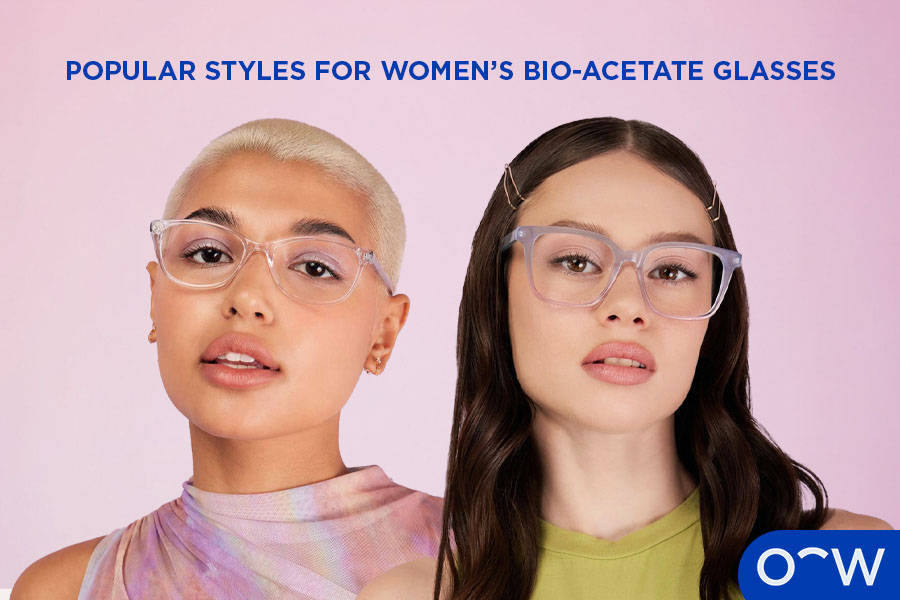

Do Men's and Women's Bio-Acetate Frames have Different Size and Fit Options?
Yes, men’s and women’s bio-acetate frames can come in different sizes and fit options to accommodate the typical facial differences between men and women. Men’s bio-acetate frames can be larger with wider temples, signalling a more masculine look. Women’s frames may be narrower with more feminine lenses such as cat-eyes. However, there is still a variety in size for men’s and women’s bio-acetate glasses to accommodate many face shapes, as well as unisex options.
Are There Any Specific Brands Known for their High-Quality Bio-Acetate Frames for Each Gender?
Brands such as RayBan, Hugo Boss and Oscar Wylee have a range of bio-acetate frames for each gender. Bio-acetate frames are increasing in popularity amongst brands and customers alike, due to their more eco-conscious properties compared to traditional plastic materials.
Why is Bio-Acetate Material better for Glasses?
Bio-acetate material can be better for glasses due to its durability and reduced carbon footprint. Bio-acetate is durable, offering a high-quality frame resistant to wear and tear, making it an appealing option for glasses. Bio-acetate is also considered to contribute to a smaller carbon footprint due to the lesser amount of oil-based plasticizers present compared to regular acetate.
Is there any Difference between Bio-Acetate Glasses and Acetate Glasses?
Yes, there is a key difference between bio-acetate glasses and acetate glasses. Bio acetate swaps out some of the oil-based plasticizers present in regular acetate for bio-based plasticizers. This makes bio-acetate more environmentally friendly compared to regular acetate due to its reduced carbon footprint.
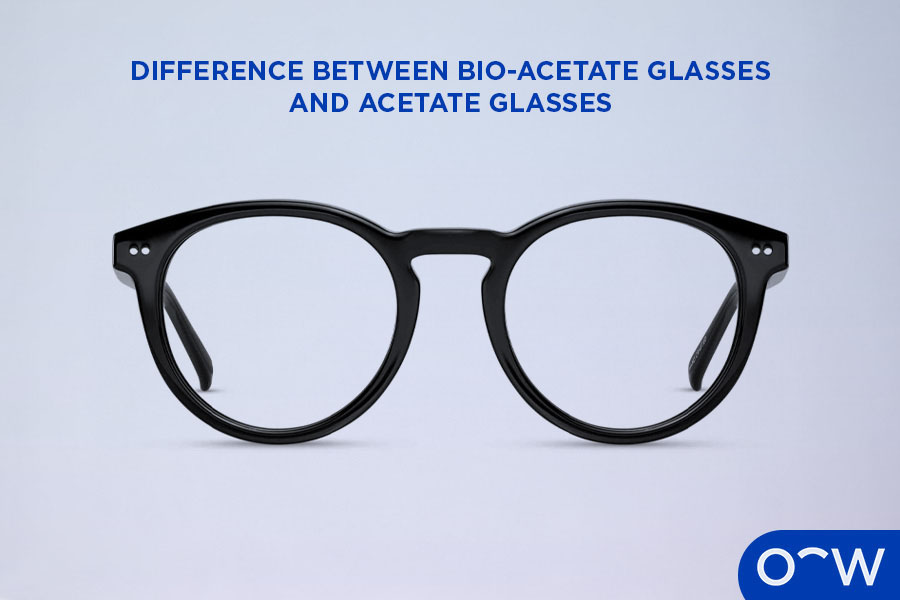

Read Bio-Acetate Glasses (Eyewear) in other Oscar Wylee regions and their languages.
 Canada
Canada


